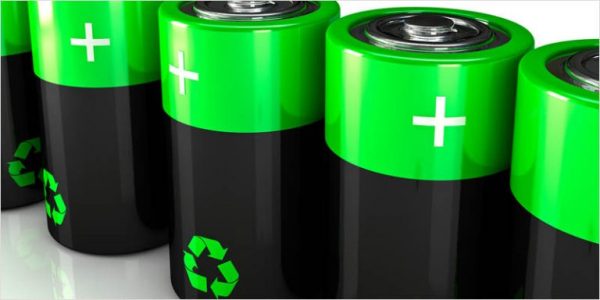Engineers develop high energy density all-solid-state batteries

(Natural News) Solid-state battery technology has reached a new milestone in terms of energy storage. Thanks to the new conducting material developed by Japanese researchers, all-solid-state batteries will boast the greatest energy density yet.
The hydride lithium superionic conductor arranges clusters of hydrogen anions (negative ions) into specialized structures. The material displays far greater stability against lithium metal, the current benchmark for electrode materials in batteries.
Researchers from Tohoku University (Tohoku) and the High Energy Accelerator Research Organization (KEK) described their new conductor as the best anode material for all-solid-state batteries.
Standard lithium-ion batteries have reached their limits in terms of energy density. They can only store so much electricity and transfer ions at a certain top speed. Researchers cannot squeeze any more performance out of lithium-based technology.
All-solid-state batteries with a lithium metal anode offer a way to increase energy density. However, they remain impractical for mass production in cells.
The solid electrolyte materials grow unstable when they interact with the lithium anode. They make it more difficult to transfer lithium ions, which reduces the performance and energy density of the battery. (Related: Tiny disorganized crystals may hold the key to new magnesium battery energy storage technology.)
This new solid electrolyte stays stable even when it’s touching lithium
In response to these challenges, the Tohoku and KEK research team developed a solid electrolyte that transported considerable numbers of ions at high speeds. More importantly, it also remained very stable against lithium metal.
Sponsored solution from CWC Labs: This heavy metals test kit allows you to test almost anything for 20+ heavy metals and nutritive minerals, including lead, mercury, arsenic, cadmium, aluminum and more. You can test your own hair, vitamins, well water, garden soil, superfoods, pet hair, beverages and other samples (no blood or urine). ISO accredited laboratory using ICP-MS (mass spec) analysis with parts per billion sensitivity. Learn more here.
“We expect that this development will not only inspire future efforts to find lithium superionic conductors based on complex hydrides, but also open up a new trend in the field of solid electrolyte materials that may lead to the development of high-energy-density electrochemical devices,” explained Tohoku researcher Sangryun Ki, one of the developers of the superionic conductor.
In addition to energy density limitations, lithium-ion batteries experience serious drawbacks like leaking electrolytes and catching fire. All-solid-state batteries do not suffer from these problems.
Despite these problems, lithium still holds on to its title of “ultimate anode material” for all-solid-state cells. The metal displays the highest theoretical capacity and the lowest potential among the available materials for making anodes.
As such, solid electrolytes that conduct lithium ions become a vital part of all-solid-state batteries. The ability of the electrolyte to transport ions and remain stable contribute to the performance of the cell.
All-solid-state batteries get a big boost to their energy density
The majority of solid electrolytes tend to become chemically or electrochemically unstable; perform poorly when they physically touch against lithium metal; or both. As such, the interface between these materials experiences side reactions that increase the resistance.
Higher resistances reduce the efficiency of the battery. Running the cell through multiple cycles of charging and discharging makes this worse.
Earlier studies stressed the difficulty in keeping solid electrolytes from getting destabilized by the necessary contact with lithium metal anode. The issue stems from how lithium metal reacts very strongly with the electrolyte, producing lots of heat energy in the process.
“Complex hydrides have received a lot of attention in addressing the problems associated with the lithium metal anode because of their outstanding chemical and electrochemical stability against the lithium metal anode,” explained Kim. “But because of their low ionic conductivity, using complex hydrides with the lithium metal anode have never been attempted in practical batteries.”
The Tohoku and KEK researchers succeeded in creating a complex hydride that conducts lithium ions at very high speeds (hence the “superionic” or “super-ionic” term) at room temperatures. Its stability and high conductivity make it a perfect partner for a lithium metal anode, leading to all-solid-state batteries with higher energy densities.
Sources include:



